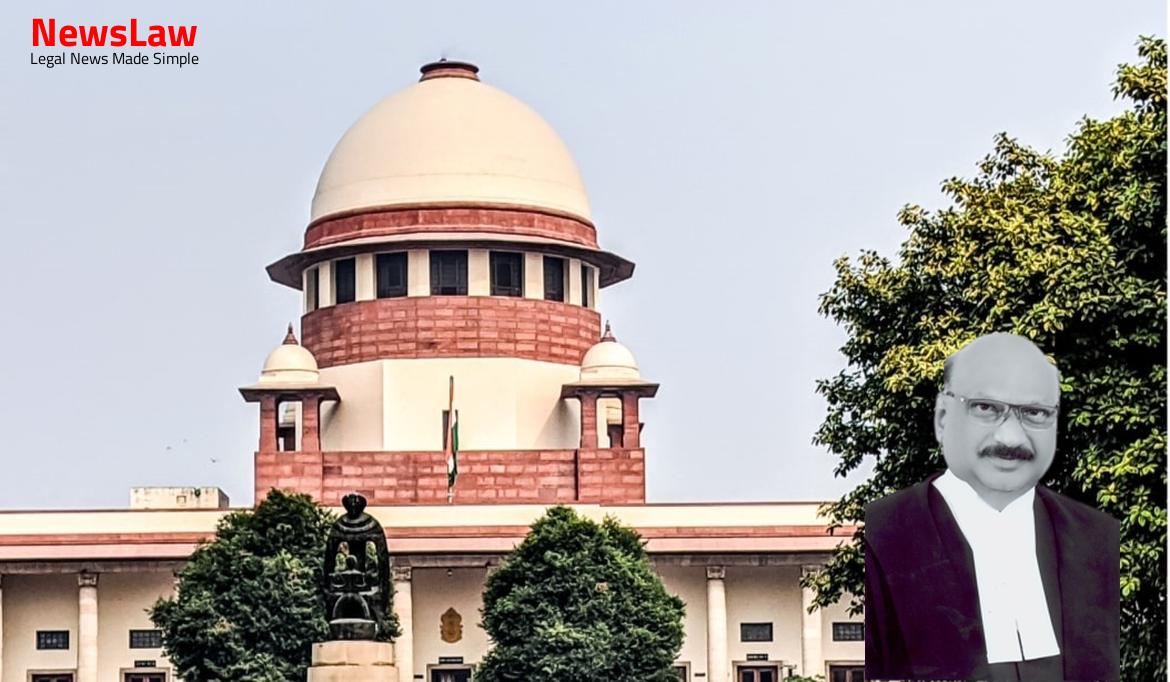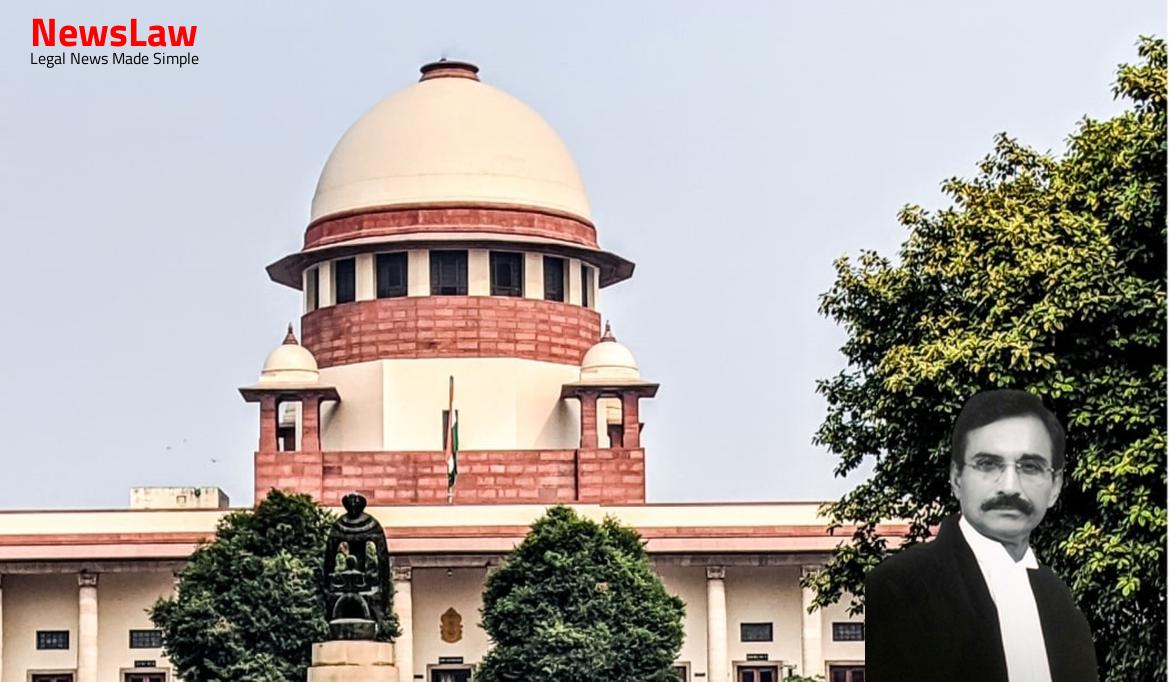In a recent legal case, the court delves into the nuanced analysis of what constitutes a ‘consumer’ in agricultural agreements. The focus is on differentiating between transactions involving commercial resale and those centered around livelihood-based self-employment. This case sheds light on the interpretation of the law in the context of small agriculturists and their dealings with seed companies, providing crucial guidance on consumer protection in the agricultural sector.
Facts
- The complainant, a small landholder, responded to the seed company’s advertisements in 2003 about the buyback of safed musli.
- She entered into a tripartite agreement with the seed company and its franchisee to purchase and cultivate wet musli.
- The agreement stated the purchase rate of Rs. 400/- per kg and the minimum buyback price of Rs. 1,000/- per kg.
- The complainant alleged negligence and breach of contract by the seed company for failing to buy back her produce, leading to crop destruction.
- The District Forum initially dismissed the complaint, citing the complainant not being a ‘consumer’ under the Consumer Protection Act, 1986.
- The State Commission reversed the District Forum’s decision, recognizing the complainant as a ‘consumer’ under the 1986 Act and remanding the case for further proceedings.
- The Revision Petition was dismissed with a cost of 2,500/- imposed on the Appellant, payable to the Respondent.
- The instant appeal challenges the order of the National Commission.
- The Appellant’s Counsel argued that the Respondent did not fall under the definition of a ‘consumer’ as per Section 2(d) of the 1986 Act.
- The argument was based on the tripartite agreement which involved buyback of musli by the Respondent from the Appellant, seen as resale excluded from the scope of Section 2(d).
- The National Commission and State Commission viewed the agreement as a mix of product sale and service provision, given the Appellant’s commitment to provide wet musli, technical support, guidance, and crop insurance.
Also Read: Preservation of Open Spaces in Development Plans
Issue
- The only aspect for consideration is whether the Respondent was excluded from the definition of ‘consumer’
- Focus is on whether the transaction amounted to resale or was for a commercial purpose
Also Read: Jurisdictional Limits and Statutory Compliance in Development Planning
Arguments
- Appellant referred to Synco Textiles (supra) case where large scale commercial activities were excluded from the definition of ‘consumer’.
- Argument that cultivation of musli was not done on a commercial level but for livelihood by a poor agriculturist.
- Cultivation and sale of musli by Respondent was argued to be for a commercial purpose, not for earning livelihood.
Also Read: Rights of Mirashi Tenant in Mortgage Redemption Case
Analysis
- Definition of ‘consumer’ under Section 2(d) of the 1986 Act includes criteria for identifying a consumer in the context of buying goods or availing services.
- The definition outlines the scope of a consumer by considering the payment or promise of consideration, excluding persons obtaining goods for resale or commercial purposes.
- The explanation added in 1993 clarifies that ‘commercial purpose’ does not include use of goods or services solely for self-employment and livelihood.
- The clarification on ‘commercial purpose’ was first addressed in the case of Laxmi Engineering Works v. PSG Industrial Institute in 1995.
- The concept of ‘commercial purpose’ in relation to self-employment was discussed in the context of consumer protection cases.
- The application of the ‘self-employment’ exception to the ‘commercial purpose’ clause was clarified to be applicable only when the goods purchased are used by the buyer for earning their livelihood.
- Activities like planting trees for resale were deemed to have a commercial purpose and not considered at a self-employment level.
- The decision in the case of Synco Textiles and Laxmi Engineering was referenced to explain the ‘commercial purpose’ clause in consumer protection law.
- The court highlighted that in cases where goods are purchased and used by the buyer exclusively for earning their livelihood through self-employment, they would still be considered a ‘consumer’.
- The National Commission held that the intermediary was acting as an agent without receiving consideration.
- In the Sakthi Sugars case, there was a clear agreement between the farmer and corporation for financial assistance, rendering a service.
- The farmer in question was eking out a livelihood through self-employment.
- The reliance on Sakthi Sugars to argue against a farmer being a ‘consumer’ under the 1986 Act may not be valid.
- The farming activities were primarily for earning livelihood and not for commercial purposes.
- The categorization of the farming activities as ‘commercial’ would not exclude the farmer from being a ‘consumer’ under the 1986 Act.
- Agreements like the one in this case often guarantee technical and financial assistance to farmers.
- The definition of ‘consumer’ under the 1986 Act encompasses farmers like the respondent with buyback agreements.
- Seed companies tend to resist small claims by exploiting their capacity to litigate for long periods of time, which harms agriculturists.
- Costs were imposed on the Appellant to discourage such conduct in the future by them and other seed corporations.
- The National Commission’s order on the Respondent being a ‘consumer’ under the 1986 Act was affirmed, and the Appeal was dismissed.
- The Appellant’s contesting of the farmers’ claims led to unnecessary spending on litigation by small agriculturists, far exceeding the relief claimed.
Decision
- The appeals are dismissed in terms of the order passed in Civil Appeal No 7357/2010.
- The concerned District Forum is directed to hear and decide the complaints within three months from the date of receipt of this judgment.
- Cost of Rs. 25,000/- is imposed on the Appellant in each of these appeals, to be divided equally amongst the respondents in each appeal.
- Costs totaling Rs. 25,000/- are to be paid by the Appellant to the Respondent in each appeal.
Case Title: M/S NANDAN BIOMATRIX LTD. Vs. S.AMBIKA DEVI (2020 INSC 289)
Case Number: C.A. No.-007357-007376 / 2010



